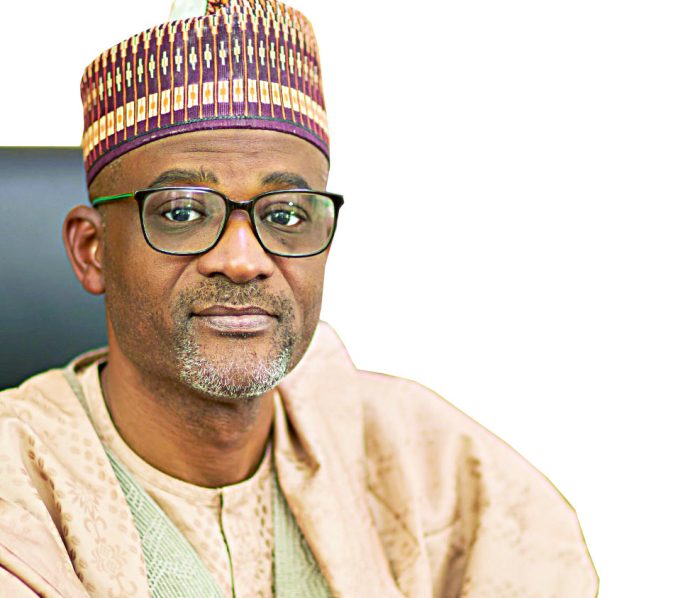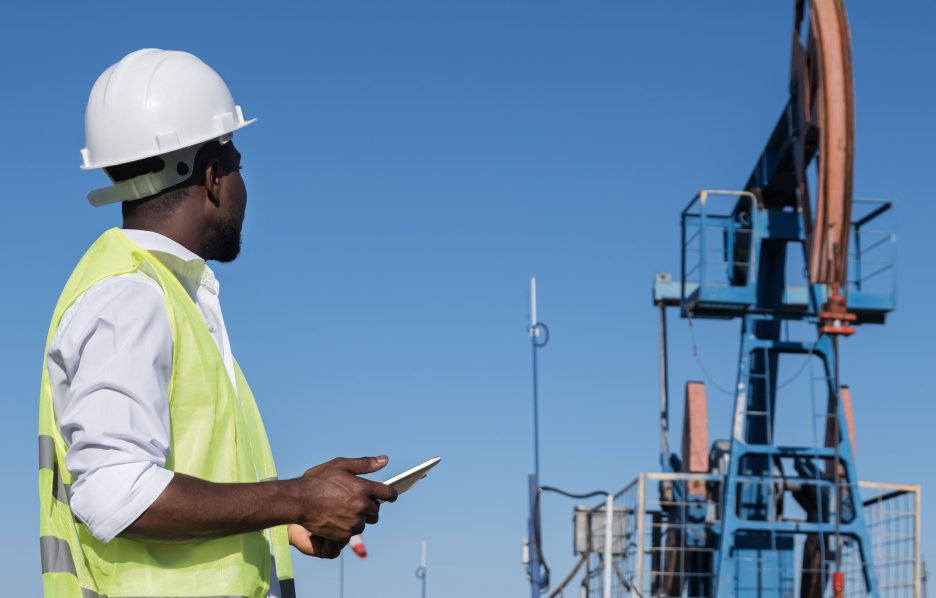
Usman Umar, leads Mainstream Academy, a division of Mainstream Energy Solutions Limited, overseeing Jebba, Kainji and Zungeru dams, along with the Yola Electricity Distribution Company. He shares insights on Nigeria’s energy future and the crucial role of skills, with
KINGSLEY JEREMIAH. In the interview, he addresses the geopolitical shift toward renewable energy in Africa, emphasizing the impact of skills in achieving national energy goals amid significant youth migration.
Why has the power sector in Nigeria remained a shadow of itself 10 years after privatisation?
In the Nigerian context, every sector grapples with challenges and no aspect operates optimally. The power sector, encompassing generation, transmission, and distribution, faces liquidity issues as investors contend with deficits.
Decisions and policies, often influenced by politics, play a crucial role in the sector’s functionality. Legislation and funding are vital for sustainable operations, and without them, the sector operates sub-optimally.
The broader economic challenges further impact the power sector. The economy’s current state, coupled with purchasing power concerns, complicates the determination of the right pricing for services. Achieving ‘cost reflectivity’ becomes challenging, given the need for subsidies in the absence of liberalization. Striking a balance between affordability and sustainability becomes crucial in a society marked by dysfunction. While awaiting the outcomes of the new administration’s policies, there’s recognition that some decisions need prompt attention. Amidst the complexities, the focus on nurturing the academy remains a priority.
Recently, we trained 50 individuals from the northeast, providing value to both the participants and our organization. Initiatives like dam safety workshops contribute to our engagement with partners across West Africa, attracting professionals to Nigeria.
The academy, with its excellent facilities, is evolving with a commitment to certifications, curriculum development, and faculty enhancement. Ultimately, the vision is for it to transform into a specialized university.
This is coming at a time when unemployment is high in Nigeria and there are indications that Nigerian youths are not benefiting from the jobs being created by the energy sector, one of the key issues fueling migration to Europe, America and elsewhere. How do we address this?
The global youth phenomenon is a shared challenge and even in the contracting global economy, opportunities abound for those who seek them. Governments play a pivotal role in guiding and setting the tone for initiatives. Considering levying a percentage from regular income and education taxes for the Tertiary Education Trust Fund can contribute to youth development. These funds, often used for infrastructure, could also be directed towards training and retraining the youth.
Companies, like Mainstream, invest significantly in corporate social responsibility. The impact, particularly in host communities, is notable. While acknowledging challenges, there is a need to focus on the positive impact already made on the youth. Amid concerns about the number of out-of-school children, numerous agencies, NGOs, and businesses are actively involved, but their contributions often go unmeasured.
Mainstream’s foundation, since its inception in 2016-2017, has spent close to N10 billion on community developments. This reflects the company’s commitment to complementing government efforts and making a meaningful impact at the grassroots level. Training initiatives, like the one in the northeast, create a cascading effect on employment, touching not only the trainees but also their families and communities.
While acknowledging that not everyone can be absorbed, the focus should shift to the positive changes happening. Agriculture remains a significant employer, and empowering individuals with skills creates a ripple effect. Recognizing the resilience of Nigerians, the government’s role is to create an enabling environment for individuals to thrive.
As a farmer and supporter of education, there is a need for collective concern about the outcomes of training programmes. Encouraging a mindset that goes beyond graduation to consider the impact on individuals and communities is crucial in fostering sustainable development.
President Bola Tinubu and hundreds of other Nigerians attended the United Nations 28th Conference of Parties (COP28). What is your take on the energy transition mantra?
The recent event in Dubai underscores the urgency of addressing climate change and reducing CO2 emissions globally. While Africa’s total emissions are less than two per cent, the importance of adopting renewables for a cleaner and healthier future cannot be overstated. In Nigeria, where water is a primary raw material for power generation, the potential for hydro and renewable energy is substantial. Despite the relationship with oil in turbine operations, the focus on harnessing abundant hydro and renewable resources can contribute significantly to a sustainable energy future.
Given the enormous resources, how can we unlock the power sector for self-sustainability and export potential?
Liberalizing the power sector, similar to the approach taken with PMS, could attract much-needed investment. The power sector’s lengthy and expensive development process, spanning five to seven years for dam construction, demands stability in policies. Currently, the government acts as the sole buyer, sometimes delaying payments for generated power. Allowing diverse entities to purchase power directly could expedite transactions and bring in investments.
Nigeria’s participation in the West African Power network sanctioned by the Economic Community of West African States (ECOWAS) creates opportunities for regional interconnection. Vast areas like Maiduguri, Katsina, and Kano, with ample sunlight, have the potential for large-scale solar power installations, generating thousands of megawatts. The existing capacity could not only meet domestic needs but also enable power exports to neighboring countries within the West African network.
Do you think it is feasible to prioritise skills export from Nigeria in a more strategic way, recognising that Africa is getting noticed across the world? With your ambitious energy university, how could this work?
I have encountered discussions about the ‘japa’ phenomenon, especially concerning young doctors leaving the country. Instead of letting them go without any return on our investment, why not sell their skills to other nations? If they’re leaving, let them pay for the training they received with our resources. We can implement a system where those hiring these professionals abroad must compensate us. Moreover, we could establish a programme like the Technical Needs Corp, akin to NYSC but with an international focus. For instance, I’m considering training 1000 people in energy and financial reconciliations. These trained individuals could then be offered to other countries, with a fee paid for their services. The goal would be for them to return after a period, or if not, we renew the arrangement.
This is an imaginative concept, but I am looking ahead, building a legacy that anticipates the future. I recently visited Mauritania, where they train 1000 people yearly, sharing the cost among the citizens. I am inspired by their approach to developing a pool of professionals for the future. This idea has given me thoughts about my organisation’s role in training future Nigerians.
As a Nigerian, I experience the challenges of electricity, even though I generate it. My vision is to contribute to training the next generation in a country that has faced ongoing crises. My generation was perhaps the last to truly enjoy a stable Nigeria.

Are we optimising research and development both in the energy sector and across the board?
I mentioned the concept of comparative advantage, emphasizing that we don’t need to reinvent the wheel. We can leverage existing knowledge globally. Africa, particularly Nigeria, is the next frontier, and the focus should be on utilizing our population’s potential independently.
In our academy, a goal for 2024 is to tap into the expertise of retired staff aged 65-70, creating a knowledge exchange platform. Recognizing the aging workforce, we aim to export power and skills, fostering collaboration with retirees in research areas. This aligns with our vision for the academy’s future university role.
Mainstream is open for business and we are planning to bring sector players together in 2024 to address critical infrastructure aspects.
Aligning with former President Muhammadu Buhari’s executive order, we aim to use part of our tax payments to invest in the power sector, focusing on efficient capacity utilisation.
With a current generation capacity exceeding 7000 megawatts, we’re strategically working towards a growth agenda, targeting 3000 megawatts in the next five years. This includes considering innovative approaches, such as placing solar panels on lakes. We welcome government functionaries to explore collaborative opportunities, providing insights that can benefit both parties. Our involvement in transmission lines also emphasizes the importance of training engineers to ensure sustainable development.
Nigeria is faced with a serious energy crisis and the emerging shift in the market is making this more challenging. How are the operators bridging this gap?
To provide context, after the privatisation of the sector following reforms, generating companies were sold, and a percentage was on concession. The government retained control of the transmission. Mainstream successfully bid for Jebba and Kainji dams. As a brownfield project, rapid stabilisation and revenue improvement were crucial to justify the substantial investment. The need for a cultural shift became evident to adapt to a business-oriented mindset. This transformation, ongoing for a decade, has made significant progress, steering toward profitability despite economic challenges.
Adapting to business constraints and staying relevant involves continuous training and skill development. The Kainji dam, commissioned in 1968 requires modernisation due to the aging equipment. Recognizing this, we initiated a training academy inspired by mature models observed during visits to Ghana and Côte d’Ivoire. The academy initially focused on internal training but evolved to offer specialized programmes in renewable energy.
Owning Nigeria’s two largest hydro plants, with recent wins in the bid for additional plants, motivated us to commercialize aspects of our operations. The academy now plays a pivotal role in capacity building, fostering strong partnerships with original equipment manufacturers like Siemens and Andritz.
The academy aims to incubate talent not only for Mainstream but for the broader Nigerian and international energy landscape. Looking ahead, our vision is for the academy to evolve into a university of electric power, graduating skilled professionals in power generation and distribution.






